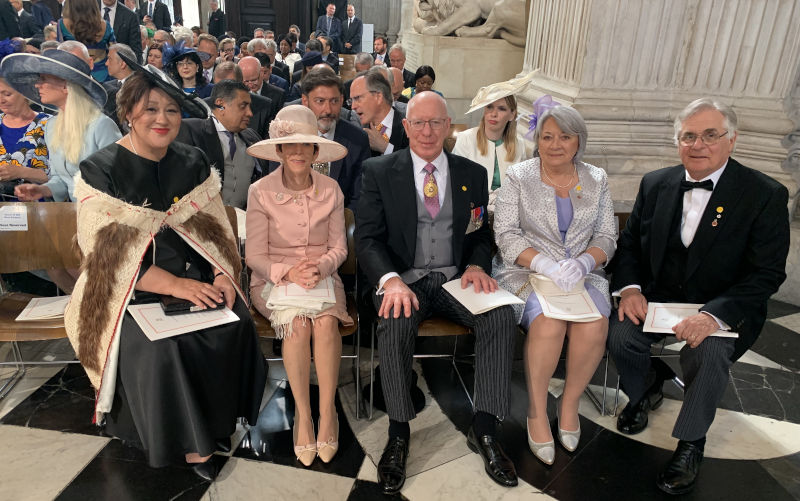Do we need a Head of State?
August 28, 2022
_In the Claytons monarchical system that governs Australia, the Governor General has two roles: to symbolise the nation and to ensure the Constitution is protected. The current occupant appears to do neither particularly successfully.
_
On a number of occasions I have asked groups of Australians if they could name the current GG, and few have been successful. More people know the Australian of the year than who is currently the head of state. That more people know of David Hurley today is because he is seen to have fallen down in his duties, even though he appears to have acted totally lawfully.
But is he in fact head of state? As Senator Lydia Thorpe reminded us, we swear allegiance to a sovereign who last set foot in Australia over a decade ago. Meanwhile, as our passports remind us, the GG represents her and for all intents and purposes acts as head of state. Whatever the involvement of the Palace, it was Sir John Kerr who dismissed Whitlam.
Remember the uproar during the bushfires when people asked where is the Prime Minister? No one seemed very interested in finding the GGwho was in fact visiting troops abroadand certainly no-one argued that the Queen should do more than send messages of condolences from Windsor Castle.
I suspect that the relative invisibility of the GG is attractive to Prime Ministers, who increasingly behave as if they were in fact presidents rather than first ministers. What Scott Morrison has shown us is that the presidential urge is not confined to the ceremonial.
I am not a constitutional lawyer, but what mystifies me is why the GG, having sworn in ministers for the various portfolios then assumed by Morrison, did not ask how it was possible for him to agree to appoint a second minister to the same portfolio. Was Josh no longer Treasurer? Had Karen Andrews commission been withdrawn? If not, which minister was responsible for decisions vested by legislation in a particular minister?
Yes, the GG is bound to follow the advice of the government of the day. But the role is pointless if a GG cannot insist that this advice is constitutionally sound. Previous Governors-General have been conscious of their responsibility, although their advice is rarely public. There is a tantalising sentence in Malcolm Turnbulls memoirs where he suggests that then Governor-General Sir Peter Cosgrove would have refused to prorogue parliament should Turnbull have requested it.
As Ive argued elsewhere there is a good argument for a system that combines a parliamentary government with a non-partisan head of state [God Save the Queen: The strange persistence of monarchies]. There is even a good argument for a hereditary head, if the monarch resides in the country and can be seen as symbolising the nation. That is not the Australian situation.
The Morrison saga has given new life to demands to change our current constitutional absurdity. The Republican movements response is to demand an Australian president, who is elected from a slate of names chosen by state and federal parliamentarians. Its a complex proposal and has not been met with widespread enthusiasm. Their solution retains the problem of balancing the powers of an elected president against an elected parliamentary government, although there are many examples of countries that have managed to find solutions.
It is a major flaw in our present system that the Governor General is chosen by the Prime Minister, to whom she or he is nominally accountable. British prime ministers do not get to choose their head of state. But rather than replacing an appointed GG with an elected president might we not dispense with a head of state altogether?
The ceremonial duties of the head of state could easily be divided amongst a set of officials, including the Chief Justice, the President of the Senate, even the Australian of the Year. The real question is whether we need a head of state who acts as the ultimate guarantor of constitutional proprieties.
One of the underlying problems that Morrisons antics revealed is the extent to which our politics have become presidential. The media bears much of the responsibility; the constant framing of the last election as a choice between Morrison and Albanese ignored the realities of parliamentary governmentand, as it turned out, the voted of a third of the electorate for whom neither was the first choice.
A stronger Parliament, which met more frequentlyin the second half of this year both Houses will only sit for seven weeksand a stronger emphasis on collective cabinet responsibility could help guarantee greater oversight. I wish I could be convinced that would obviate the need for a non-partisan head of state.
The only country that seems to have dispensed with a head of state is Switzerland, whose political culture is very different to ours. But this does not mean we could not find a formula that might satisfy both the need to end the Windsor connection and to strengthen parliamentary oversight. We might start by questioning the need for state governors, whose role would hardly seem to justify the extraordinary attractive real estate they occupy in our state capitals.

